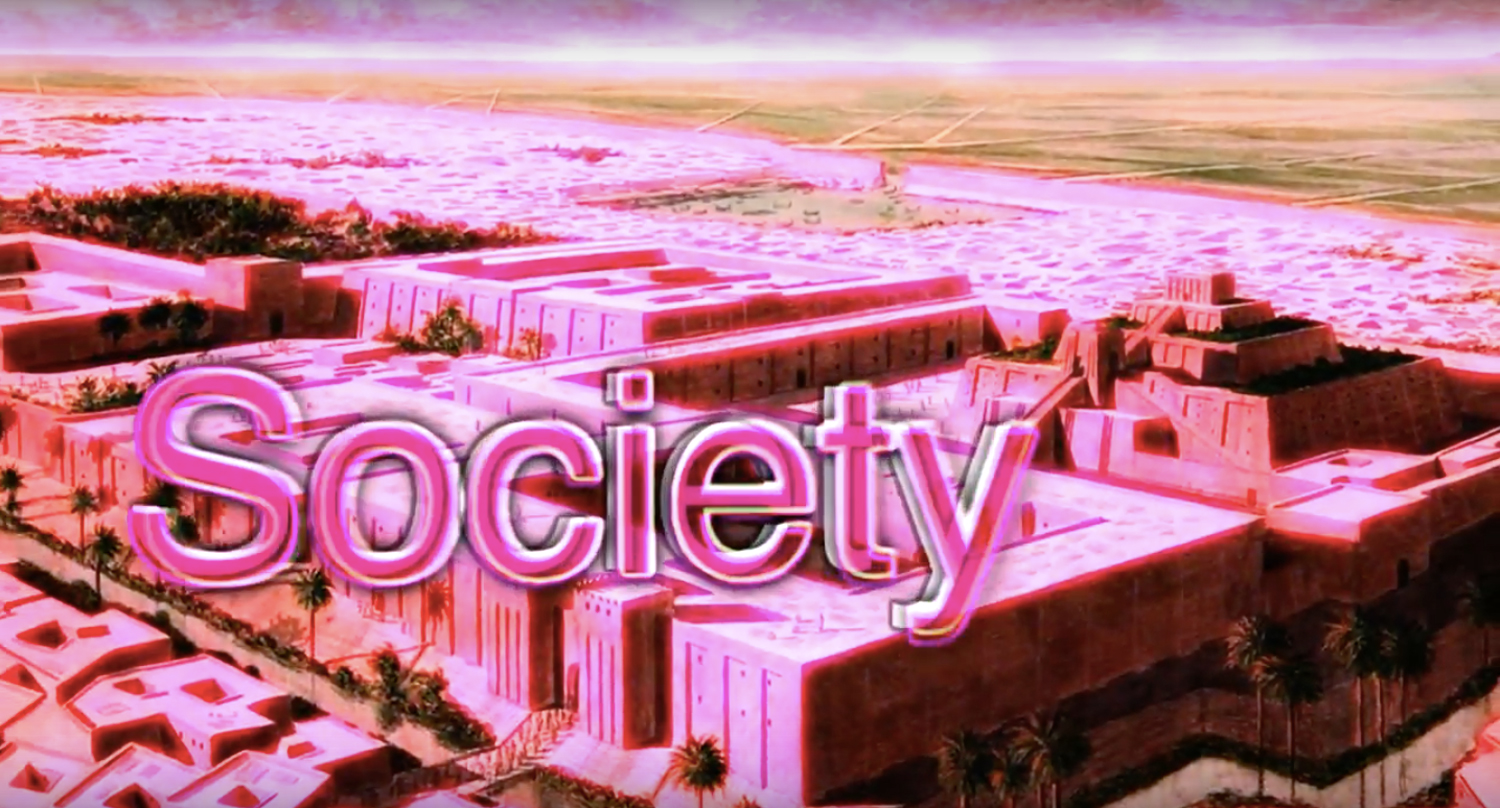“something doesn’t add up”
yes it does. that’s exactly what it is you’re describing. all of it adding up. as always people struggle with exponential growth because it’s not very intuitive.
my favorite way to demonstrate the unintuitive nature of exponential growth is this question:
there’s a pond, and a lily pad on it. the number of lily pads double every day on the pond. so on day 1 there’s one, day 2 there’s two, and on day 3 there’s four… etc.
if it takes 120 days for the pond to get completely covered in lily pads, what day was only half of it covered?
!the answer is 119.!<
If it takes 120 days to be covered thats a huge fucking pond.
The pond is the Pacific Ocean.
Let’s see…2^120 is 1.329•10^36 lily pads. Say 15cm diameter for a lily pad, that’s got an area of 177cm^2. That’s 10.3•10^38 cm^2.
The surface area of the Pacific Ocean is only 1.652•10^18 cm^2.
We’re boned.
Nah just really small Lily pads
that is purposeful. it wouldn’t make much of a point if it took 10 days.
I mean sure it would? That’s rhe whole point is that exponential growth quickly reaches massive quantities. Like literally after 120 days I doubt that many lilypads would fit on earth.
I’m not sure what lily pads so I went with the largest which have around 7.069m2 of surface area or 0.0000007069km2 surface area.
Earth has a surface area of 510,064,472km2
After 120 days of doubling we have
6.64614x1035 * 7.069x10-6 = 4.6982Ex1030
So you are correct but it’s also around 23x the surface area of the sun.
I love how their goof helped further show how humans suck with exponential numbers
I think the lilypads might need to be smaller than an atomic nucleus? Someone check my math. But still larger than a Planck length, so it is fine.
they wouldn’t, but it’s not a real pond, and not real lily pads. i was going to say 20 but went for 120 to make the ratio more extreme, not to make it realistic.
The standard story is “One Grain of Rice” https://jwilson.coe.uga.edu/EMT668/EMAT6680.F99/Martin/instructional unit/day4.exponential/excel/grainofrice.html
thanks, i love that story.
Are you some kind of bot or something?
You’ve deleted your response to me but it’s still in my inbox… and it’s hilariously pretentious and pedantic. I understand why you’ve deleted it.
Yeah I was trying to reply to the higher level above yours. Your butt pain was just a casualty.
I recognized that this user is willing to share information and provided the standard teaching method on exponential growth; in the event they need to explain it again. I suppose critical thinking and social skills are characteristics of bots these days…
I have no idea why that person would accuse you of being a bot. You replied with a very relevant thing. I’m confounded.
Most of the people accusing others of being bots don’t seem to have a good grasp of context, like a bot.
Wait a minute.
Am I a bot?
You failed to understand contextual nuance and differences between the stories. You just referenced whatever the top indexed result was given as many keywords as possible.
Their story is about the punchline that half the pond will be covered the day before the last. The rice story is that the final result is so large that it cannot be reached.
I don’t disagree with your explanation of exponential growth or how it does answer for the speed at which we went from, say the magnifying glass to the hubble space telescope.
However, the exponential growth alone model does have a floor: it presumes that there was some kind of push, drive or want for progress. Like, as if there was a destination we’re supposed to end up at and its just a case of how long it took to get there. It excludes the idea that people might not have wanted to.
People didn’t want to toil all day in someone else’s farm. In smaller numbers, on good land, people didn’t have to do very much to get the food they needed. Its only when farming became developed and consistent enough that those living there had the numbers to go kill the people who lived on the good land.
Once we’d been, for all intense and purpose, domesticated by grain, “progress” was inevitable.
Another example would be the industrial revolution. People ask why it was so much faster here in the UK than France. It wasn’t because of a desire for progress. Its that French people had a natural aversion to being worked for 12 hours a day in hell-like factories and workhouses. I mean, British people did too but they had mostly just been kicked off the common land they had lived on for centuries. So, they had no other place to go and begging and not having a job for more than three days was made illegal, punishable by being sent to to workhouses. At one points, they had more British soldiers fighting the riots at home than they had fighting napoleon.
my comment referred to knowledge more than anything. the more you know, the more you have to go from to learn new things. incredibly simplistic summary for very complex phenomena, but I wasn’t going to go through the entire human history. there are breaking points and regression stages, but generally speaking it makes sense that the more you progress, the faster you can progress further. you have more tools.
Not entirely true, England just had a shit ton of trade from its colonies, and better trade led to more intense interconnection, and wealth which in the developing industrial method of production led to an explosion of capital. It was to the point the Rhodes (Rhodesia the British colony was named after him) called expansion an existential question for England, because the explosion of capital had to go somewhere. What’s nuts about capital is that it produces more capital using ever more advanced industries and methods of production. England with massive markets and capital available was able to do this to an insane degree. But still, France is something like the third wealthiest nation after US and England, so they did not do too bad for themselves, and their capital still had a field day in Africa. Highly recommend reading Marx or Lenin on imperialism, it’s legit the whole Marxist thesis how modern industry came about, and for Marx, he literally wrote Capital based on data in England. It’s absolutely fascinating how society and the economy entered a seismic shift with the advent of Captialism
None of that explains the difference in time it took for each country to industrialise. For it to, would be to claim it was capitalism itself that did so, meaning the claim is that it wouldn’t have happened were it not for capitalism which wouldn’t be right.
Thanks but I’ve read das kapital too and, you’ll find on reflection, that, far from refuting what i said, it corroborates it fully. In particular, the chapters where he talks about the acts of enclosure. Around chapter 26 or 27, if I remember correctly.
Tried to find it but could not. Also the level of commerce absolutely had to do with how rapidly England industrialized, even if it was not the only factor. The massive accumulation of wealth and concentration of productive forces in cities was made by and made possible the advent of industrialization. Also it would not be wrong to say that capitalism caused itself, it was a continuous development from feudalism to capitalism, until it wasn’t and had to be sorted out by capitalism overthrowing the previous social order. So even if the populations of each country were different, the core idea that capital shapes the social relations still holds true, regardless of what may have come before, capitalism at a certain point had to revolutionize social relations. Perhaps if you want to argue, you could say the French were more radical in resisting capitalism (the monarchy, then the working class), maybe. But the working class could only fight capitalism once capitalism had developed to the point of creating a working class.
I’m not sure where you looked. Its one of the main points of chapter 27.
I never said that wealth didn’t contribute to it. I said the difference in wealth doesn’t come close to explaining the difference in the length of time it took to industrialise.
It would be flat out wrong to claim that capitalism caused itself, in much the same way that I can’t claim to have given birth to myself. Even if we can get past the contradiction in terms, it developed out of merchantilism, not feudalism.
My whole point, since the off, has been that the difference was the ability of French people to resist industrialisation and not wealth. Again, I’m not sure how you missed that.
But the working class could only fight capitalism once capitalism had developed to the point of creating a working class.
Are you trying to tell me that all the people at the bottom of the social order who didn’t like how it was at the time didn’t exist until Marx wrote them into being?
That most people spend most of their time passively reading celebrity news on tiny black rectangle tells you everything you need to know about the rate of human progress.
But without eleytic rectangle humans are bored… so why no electric rectangle before?
My own line of reasoning is that the speed of progress of technological advancement is dependent on the amount of people who can dedicate their lives to doing stuff other than trying to gather enough food and shelter to survive. So for the longest of times basically everyone had to just try to survive and maybe have an idea or two every now and then. Low human population and no-one able to dedicate themselves to innovation means extremely low innovation rate. But those rare times something really useful was developed and passed on to the next generation led to freeing more people to be able to dedicate themselves to innovation and thus increasing the amount of people one human can support with their work effort. This is a positive feedback loop so it has exponentially grown to today where one person’s work can support multiple people making theoretically most of humanity free to advance technology.
Your don’t need to only rely on reason for that.
It’s quite obvious it’s true when looking at history.
“Idle hands are the devil’s playthings” is a really stupid saying, unless one truly does think of the devil as the Lightbringer.
Honestly the more one reads into history, the more one realises just how progress stifling Christianity has been. (Or Abrahamic monotheism in the first place.)
When the people around modern day Greece started having extra fish and wine so some of the ppl could take it easy and just chilax, they basically came up with the central ideas that are still central to our modern society. Democracy, morality, freedom, etc.
I think that’s a generally accepted idea.
Exponential growth, thats about all there is to it. Advancing from clacking rocks to hunting deer is actually already a huge advancement.
Those 190k years in caves however werent non-advancing. A lot of advancements happened over those years.
Fires, wheels, knot tying, ceramics, pottery, grains, hunting, animal husbandry, medicine, language, art, music, rope…
Also, 10k years is after we gained writing of various forms to store information.
Keep in mind thats at the stage of shit like egypt, the great pyramids, etc. We were waaaaay beyond “cavemen” at that point. We already had trade routes, cities, nations, countless languages, doctors, etc.
The big issue was before that point, all our forms of storing information were just not able to stand the test of time very well, is all. We stopped being “cavemen” way before that mark though.
Writing isn’t just storing information. It’s transmitting it across much greater distances, more times, with much less corruption.
Oral transmission is better than nothing, but written transmission inherently has better reach. Then the printing press allowing for mass reproduction of transmission, then the internet for rapid, much more democratized transmission. It’s the spread of ideas so they can intermingle that’s the super-accelerator.
Woah there. The oldest pyramids we know of are about 5000 years old. That’s halfway to 10k.
Around 10k years before us, we developed from hunter-gatherer cavemen to neolithic city builders with irrigated farms, organized religion and and a feudal society in like 1000 years. That is also pretty quick. Sure, pyramids took a bit longer. But while pyramids are pretty damn impressive, no pyramids does not mean an “uncivilized” society.
you know how sometimes you’re trying to solve a puzzle but you’re stuck at the very beginning? You can spend hours looking at the puzzle and get nowhere. But then you spot it! the one step or the one logical conclusion you needed to advance, and you start blasting through the puzzle
it’s that
anon assumes development of science and tech is linear
It’s exponential. The gap between 200k years ago and 10k years ago is pretty similar to the gap between 20k years ago and 1k years ago, or the difference between 2k years ago and 100 years ago. On a logarithmic scale, same distance, roughly the same delta in terms of the technology available
Shit can get pretty wild when you start writing stuff down
Memes are pretty radical
start rolling down hill
going slow
go faster
hmm
about 70 years after human had its first flight, we stepped on the moon.
- first powered flight on a heavier than air craft. The first humans flew in 1783 on a hot air balloon.
This actually depends on your stance on oriental man-carrying kites, which have historical backing from the 6th century AD, but historians debate the exact standards of evidence.
It was mostly agriculture and dense human settlements, I think. Once you have someone farming enough food for themself plus someone else, that “someone else” can do something else to progress technology. Sometimes with things that allow that farmer to produce enough food for three people, then five, so goes on.
guess what happens next
more food and more people who came to buy the food now you need people to help make the food and keep track of the sales and now you need houses for people to live in and people to make the houses, and now there’s more people and they invent things, which makes things better and more people come and there’s more farming and more people to make more things for more people and now there’s business, money, writing, laws, power

coming soon to a dank river valley near you
Oldest stone axes are like a million years.
We’re not the first smart species.
I just looked this up because it sounds fake and guess what…
Looks like it is!
It’s not fake. @Dasus@lemmy.world is correct. Stone axes, fire control, language, carpentry, glue, ocean travel - heaps of smart things predate homo sapiens sapiens. We’re not the first smart species.
What is?
That there are tools older than a million years?
https://en.m.wikipedia.org/wiki/Oldowan
The Oldowan (or Mode I) was a widespread stone tool archaeological industry (style) in prehistory. These early tools were simple, usually made by chipping off one, or a few, flakes off using another stone. Oldowan tools were used during the Lower Paleolithic period, 2.9 million years ago up until at least 1.7 million years ago (Ma), by ancient Hominins (early humans) across much of Africa. This technological industry was followed by the more sophisticated Acheulean industry (two sites associated with Homo erectus at Gona in the Afar Region of Ethiopia dating from 1.5 and 1.26 million years ago have both Oldowan and Acheulean tools[2]).
I genuinely don’t know what or how you “looked it up”. Please, do enlighten me, I’m not trying to offend. Some sort of a misunderstanding?
This is a sharp rock, not an axe.
You say potato, I say tomato.
A bit dishonest for you to present it as an axe as most people would picture it. It’s a rock with a kinda sharp edge, no where near as advanced as an axe with a handle. I’ve seen animals sharpen rocks, it’s not that impressive. And pretty removed to just assume it was people 800,000 years early.
It’s literally the scientific consensus. You thinking of a cartoon axe with a wedge-shape and an oak handle when you hear the word “axe” isn’t my problem.
I’ve seen animals sharpen rocks, it’s not that impressive. And pretty removed to just assume it was people 800,000 years early.
These hand axes are incredibly complex and it takes hundreds of hours to learn to make one. It is not my fault you’re scientifically ignorant and still silly enough to think your childish notions are better than prevailing scientific notions.
Here’s some proof of earliest structural use of wood at least 476,000 years ago. And that doesn’t mean piling sticks together, it means actual woodworking, joinery.
https://www.nature.com/articles/s41586-023-06557-9
When you’re in biology class and you see an image of an egg cell, do you start flailing around saying “that’s not an egg, that’s a picture of a slimy circle, eggs are what hens poop out, they’re egg-shaped and made of egg-shell”?
Really not my problem that you don’t believe in science.
The Pleistocene (2,580,000 - 11,700 years ago) was fucking crazy cold and had a hella unstable climate. Not a nice predictable environment.
A lot of the comments are talking about writing being the game changer but it took generations of selective breeding crops and livestock to make them viable for domestication. We haven’t found any evidence of domestication prior to about 12k years ago in archeology or genetics. There were many civilizations who built large cities and never needed a writing system.
I think it was A Collection Of Unmitigated Pedantry that pointed out, some of the oldest cities with any surviving architecture had stone walls ten feet thick. You don’t start with ten-foot-thick walls. You work your way up to that.
A lot of what should be civilized history is just fuckin’ gone.
The answer is probably language. Before advanced language was developed, there wasn’t a good way to pass along any knowledge that was gained by an individual.
Language is much older than just 10k years. There’s a few reasons to think that language might have developed with erectus, which could make language 10x older than the ‘human specie’, according to anon.
That’s why i said advanced language. Lots of animals have language. Crows have language
And storage / dissemination of that language.
Thats why the fediverse is the next step in evolution.
Brainrotmaxxing
Let’s carve our memes into stone and bury them for future archaeologists.
I thought it was because proper farming.
Like being able to support larger groups of people, where individuals could specialize in other things than hunting, gathering and whatever else was keeping the early humans busy.
On the other hand I’ve heard we’ve been possibly farming long before 10,000 BCE.
Language probably predates Homo Sapiens as our close relatives such as Homo Neandertalensis and Homo Denisova also had adaptations for articulated speech.
https://www.nature.com/articles/s41559-021-01391-6
Beside, populations today that have never had agriculture or traits we associate with civilization and who live secluded, like the North Sentinelese, all have languages.
I think it’s best explained by environmental factors, rather than something interior to humanity. After all, most of human’s existence was during the Pleistocene, but all recorded history is within the Holocene (except now we’re entering the Anthropocene). Many modern studies account for the climate shifts to explain the development of agriculture:
https://www.pnas.org/doi/pdf/10.1073/pnas.1113931109
https://journals.sagepub.com/doi/10.1177/0959683611409775
Most traits we associate with civilization are linked to agriculture and sedentary.
language => written down language => widespread literacy => affordable information (printing press) => internet => hypertext websites => search engines.
we went from struggeling to keep our knowledge arround to having access to almost the entire sum of human knowledge in a mostly convenient manner.















